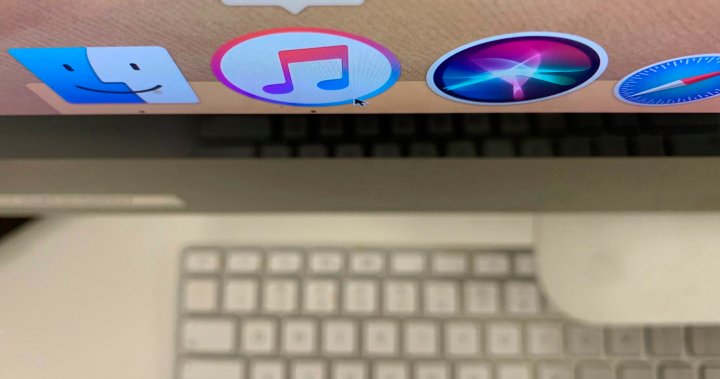On June 1, 1999, a university student named Shawn Fanning sent a message to his friends telling them about a new program he’d written called Napster. It offered music fans a way to connect and trade digital music files quickly and efficiently using a new type of compressed file called an MP3. “Don’t share it with anyone, okay?” he asked. Within weeks, Napster was being used by thousands upon thousands of people.
It was the beginning of the end for the traditional recorded music industry. After a hundred years of running a business based on selling physical pieces of plastic to consumers, executives were shaken from their complacency and denial about digital music and forced to do something. They needed to stop music from being free. If the public wanted music in digital form, then it needed to be legally purchased.
Some of the major labels sat down with Napster, offering to buy the company. But that failed because they demanded 90 per cent of the profits. Even if they had been successful, anti-trust laws would have made such a purchase difficult. Regulators would have never let the industry have complete control over both the creation and distribution of music.
That prompted the labels to pair off to create a couple of digital storefronts. Universal and Sony teamed up on PressPlay, an ornery, miserable, restrictive, and not very functional digital storefront. EMI, AOL, BMG, and RealNetworks launched MusicNet, which was no better. Consumers hated both.
Enter Steve Jobs. Knowing that the recorded music industry was in a bind over piracy, the threat of anti-trust violations, and technical ignorance, he offered a solution: the iTunes music store. And lo, it was pretty good.
More on Entertainment
As sales of compact discs continued to fall, sales of legitimate, paid downloads through digital storefronts rose and rose, especially after digital rights management locks — the pesky bits of code that prevented copying of files more than X number of times — were removed. Purchases exploded. At one point in the aughts, iTunes was responsible for somewhere around 70 per cent of all legal digital music sales.
Much was written about how paid downloads would ultimately save music and replace the compact disc. Others rhapsodized about “the long tail,” the idea that the industry would reap huge profits through the sale of low volumes of many, many, many different songs, tracks that had long disappeared from record stores. And again, things were pretty good.
But then along came streaming. Consumers were at first suspicious of the concept of renting music instead of owning it. “You mean if I stop paying my monthly subscription, all the songs I accumulate in my account will disappear? That’s madness!” The industry was distrustful, too, largely because it didn’t understand the tech. But despite a chaotic start that saw plenty of platforms fail or merge (Rdio, Songza, Mog, etc.), the public, driven largely by young people and their smartphones, embraced streaming, eschewing not only physical media (with the exception of those who discovered vinyl) but paid digital downloads.
Access to music had trumped possession of it. There was no longer a need to clutter up shelves and hard drives with your music collection. Let the cloud take care of everything.
It wasn’t long before someone asked the question, “How much longer will we be able to buy digital music files?”
The site Digital Music News thought it had a scoop at the end of 2017 when it published a story with the title “Apple ‘On Schedule’ to Terminate Music Downloads by 2019.” It claimed that in 2016, Apple began formulating a plan to phase out selling music from the iTunes Store. This roiled many areas of the internet, especially among people who have a legitimate need to purchase and hold music files.
Me, for example. I’m always buying music from iTunes to help produce my Ongoing History of New Music radio. How can I talk about and then play music on the radio if I can’t get the music?
The Digital Music News prediction has yet to come true, but Apple has killed some versions of iTunes, incorporating everything into Apple Music. Earlier this year, TV shows and movies were redirected from iTunes to a newly redesigned Apple TV app. PC users still have iTunes in a more-or-less classic form, but it hasn’t received an update since Dec. 7, 2020.
As for any other digital store front, I can’t think of any, other than those like Pro Studio Masters, which sells ultra-high-resolution audio files — files that as of yet cannot be played on most smartphones and are far too big for wireless Bluetooth connections to handle.
Meanwhile, the amount of money being brought in via streaming is cratering. OnlyAccounts.io estimates that music downloads will generate about US$1.3 billion in revenue across all platforms this year, down 40 per cent from 2017 and a whopping 21 times less than revenue derived from streaming. Money from that segment will reach 158 per cent of its 2017 levels.
Another stat: Streaming services will produce 72 per cent of global music revenue this year, up from six per cent in 2012. Paid downloads? A mere three per cent. Digital file aficionados have stalled at about 700 million worldwide. Streamers are at 1.1 billion and climbing.
Buying music downloads won’t be going anywhere soon because the demand is out there, albeit falling year after year. Higher adoption rates of Hi-Res Audio formats (Dolby ATMOS, Sony 360, MQA, Spatial Audio) may keep things alive a little longer, especially when more smartphones are able to handle them. But with all the streamers (with the exception of Spotify; what’s wrong with you?) moving to audio that’s better-than-CD quality, we’ll eventually just end up in the same place.
Meanwhile, back up your iTunes library. It will one day join your CD collection as a technological relic of the past.
—
Alan Cross is a broadcaster with Q107 and 102.1 the Edge and a commentator for Global News.
Subscribe to Alan’s Ongoing History of New Music Podcast now on Apple Podcast or Google Play
© 2024 Global News, a division of Corus Entertainment Inc.



